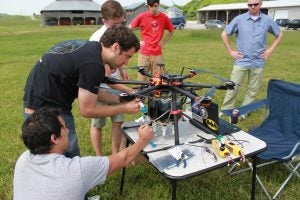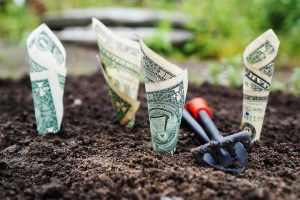If you’re an agriculturalist, you’ve probably already noticed that agriculture technology (agtech) is kind of a big deal. In recent years — as little as the past five to 10 — devices, machines, innovative software, and more have shot up all around us from farms to giant corporations.
It’s safe to say, digitalization and agtech in some form has made its way into nearly every aspect of farm management.
But we need not rely on anecdotes to confirm this — big global players have taken notice.
According to ResearchAndMarkets.com, artificial intelligence in the agriculture market share is on track to increase a whopping $11.2 billion by 2030 — up from $671.6 million in 2019.
The driving factor in all this is, unsurprisingly, population growth with increased demands for food. This has spurred a lot of companies to seek sustainable, efficient yet profitable strategies by harnessing technology that make the most of available resources. Plus, with the rising cost of labor, this is making more sense from a profitability standpoint.
The report also stated that software is likely going to be the fastest growing sector in the coming years. This can be attributed to emerging startups, expanding greenhouse systems and livestock monitoring companies that are growing by leaps and bounds.
While North American and Europe currently dominate this market, reports are looking at Asia to quickly be following up as they also develop and adopt different technologies including drones, precision ag, and robotics to their food production arsenals.

Even Forbes recently ran an eye-catching headline 10 Ways AI Has The Potential To Improve Agriculture In 2021. In it, they cited BI Intelligence Research’s statistic that globally agriculture technologies (which includes both AI and machine learning) is projected to triple revenue by the year 2025.
Also hot on the heels of the ag trend is IoT-enabled monitoring systems to allow for real-time decision-making based on continuous and accessible dataflow. This type of continuous learning could help us reduce pesticide and herbicide use as well as work around weather patterns and other environmental factors more efficiently.
It should seem agriculture has become the new home for such advancements — what once took years to catch on is now crashing down the floodgates. (The pandemic and the disruptions it forced on the many layers of the supply chain could very well be to blame for some of this.)
Not only do these help serve farmers, many experts are hopeful that what we are learning could help us solve issues such as world hunger. Likewise, there are also opportunities for greater transparency in the triangle that is producers, processors and consumer.
However, these promises are not without their darker sides. From the Tillable scandal to questions and confusion about data security, the gray area seems to be ever growing.

So, what could it all mean? For one, it certainly leaves a lot of room for anyone with a good, high-tech idea that wants to be an ag entrepreneur. It has also shed a spotlight on food production for eager venture capitalists — giving even more opportunity for world-changing ideas to get off the ground.
According to Crunchbase, a total of more than $4 billion was invested in agtech by venture capitalists in 2018 and 2019. By August of 2020, there was already $2.6 billion invested that calendar year.
Not only is this good news for startups, but it also means new technologies can get into the hands of farmers all the faster.
Will there be plenty of negative implications from these rapidly accelerating moves? Of course, undoubtedly so. There is good reason for those to be skeptical and approach the future with caution.
But no matter how cautious we are, we cannot stop the future from coming and what intended or unintended consequences it might bring. Let’s hope these new horizons will, ultimately, yield more benefits than negative.
Jaclyn Krymowski is a recent graduate of The Ohio State University with a major in animal industries and minor in agriculture communications. She is an enthusiastic “agvocate,” professional freelance writer, and blogs at the-herdbook.com.



